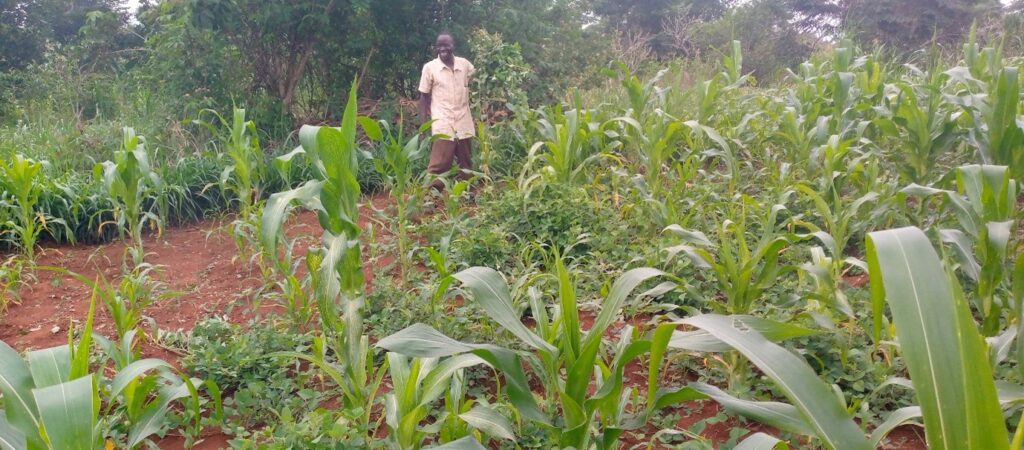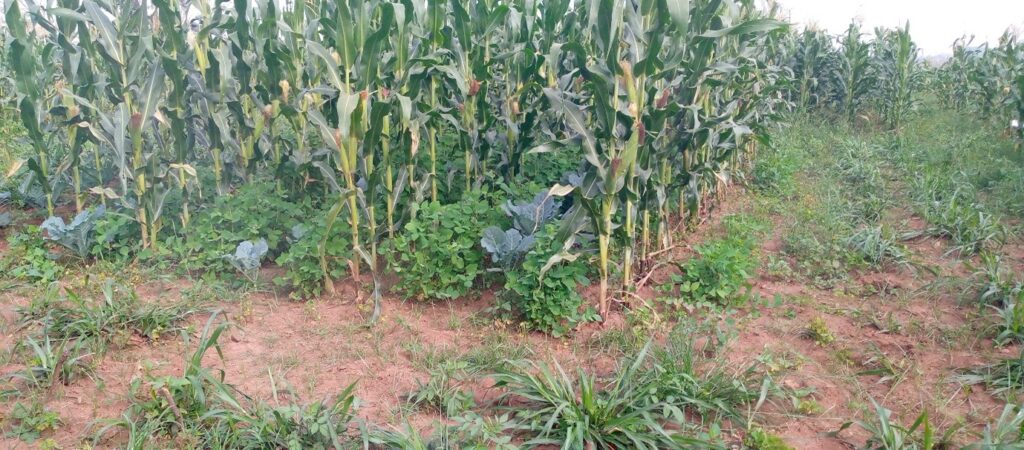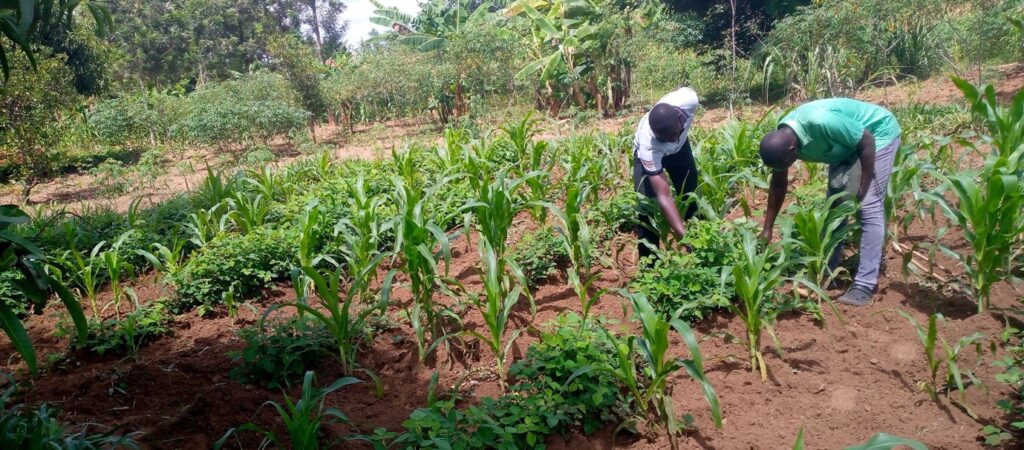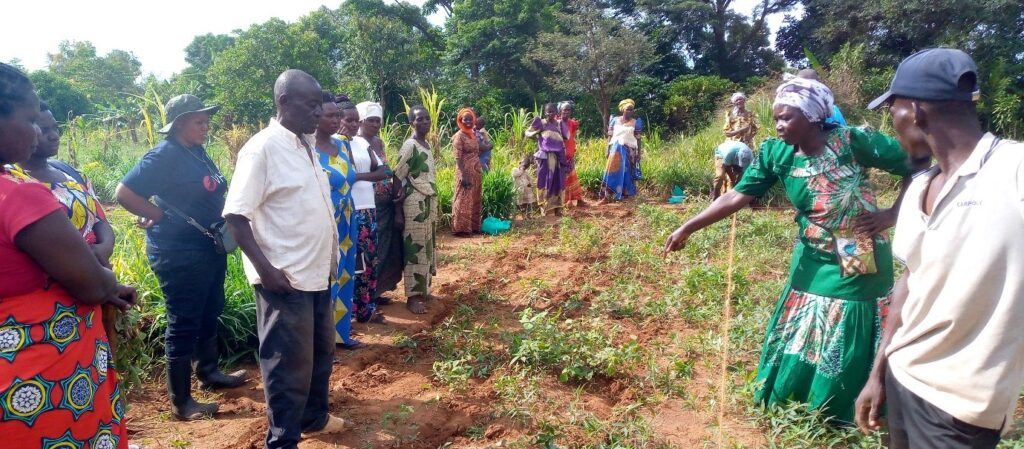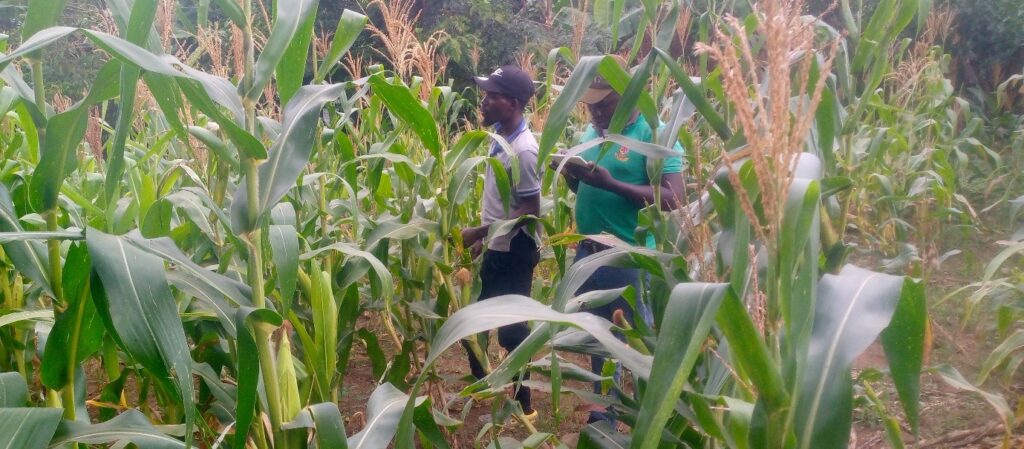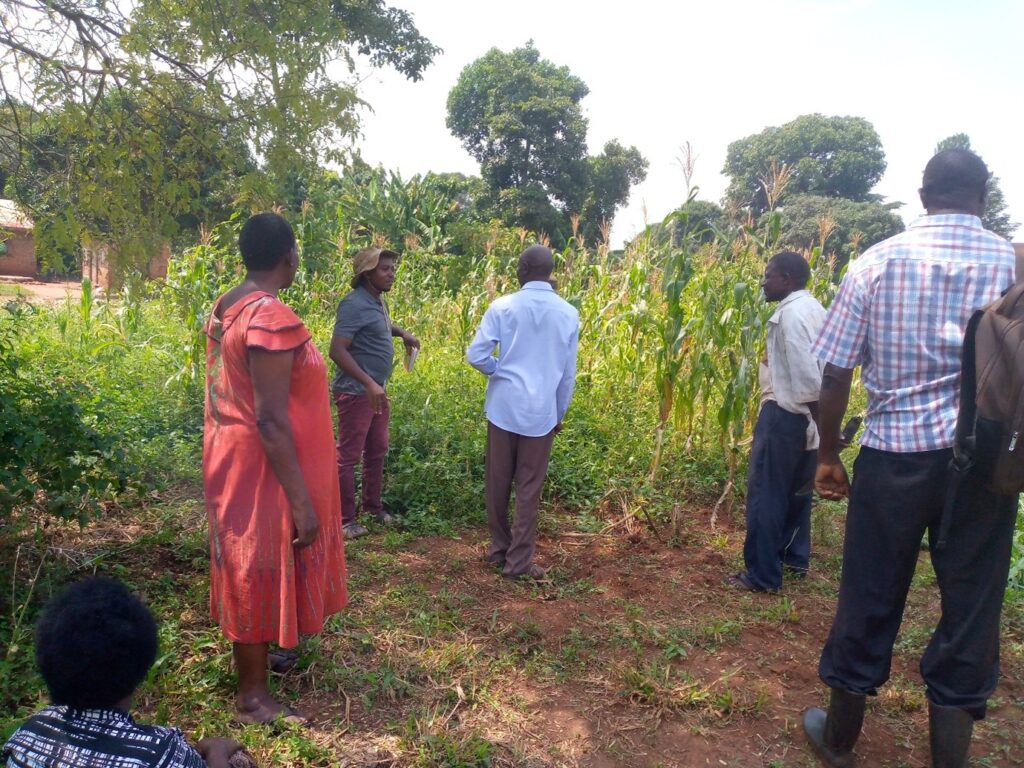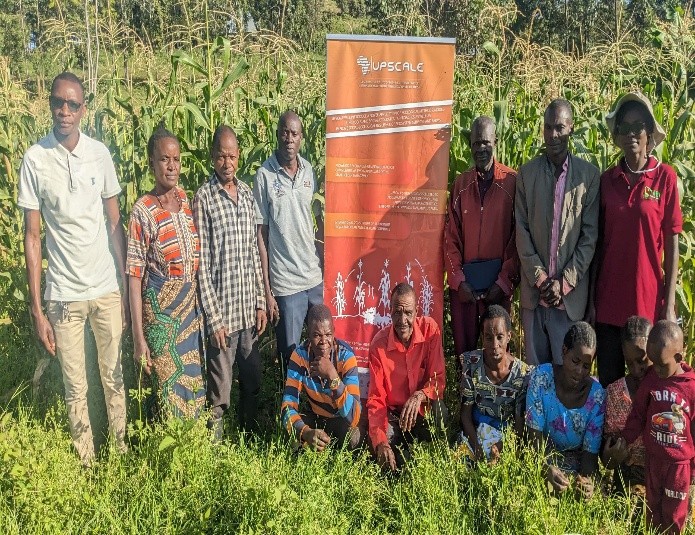The UPSCALE project continues to push the boundaries in agriculture, focusing on sustainable practices that improve crop yields and enhance food security. Development in this regard is the expansion of the conventional push-pull technology to include common beans and other high-value crops, which could transform farming practices in sub-Saharan Africa.
Traditionally, the push-pull technology involves planting maize or other cereals alongside “push” crops, such as Desmodium, and “pull” crops, like Napier grass, that naturally repel insect pests. This environmentally friendly system has proven effective in pest management and soil fertility improvement. However, in 2023 and 2024, the National Agricultural Research Organization (NARO) and its partners, as part of the UPSCALE, expanded this system by introducing common beans and vegetables to further enhance the system’s economic and ecological benefits.
Expanding the Push-Pull Technology: The Trials
The goal of this new approach was to collect empirical data on the performance of an intensified push-pull technology, which includes maize, beans, and vegetables. Mother-baby trials were conducted to compare the performance of these new integrated cropping systems. Mother trials were set up on research stations, while baby trials took place on farmers’ fields, providing real-world insights into the practicality and effectiveness of the system.
A total of three mother trials and eight baby trials were conducted, with over 100 farmers participating in field visits, where they were able to observe firsthand how the new system operates. This collaborative approach ensured that the feedback and insights of local farmers were integrated into the development process, making the trials more relevant and applicable to real-world conditions.
Innovating for Better Yields and Sustainability
Crops like kale were incorporated into the maize-bean push-pull plots, offering both economic value and nutritional benefits. The trials sought to understand how well these additional crops could be integrated without compromising the system’s effectiveness in pest management and soil improvement. In addition to testing these combinations, the trials also aimed to measure the yields of maize, beans, and vegetables, ensuring that the expanded push-pull technology could increase agricultural productivity while maintaining environmental sustainability. Farmers involved in the trials were able to assess how the new system affected crop growth, pest resistance, and overall profitability.
The integration of the mother-baby trial approach is central to the success of this experiment. By testing the system both at research stations and on farmers’ fields, the project bridged the gap between theoretical research and practical application. Farmers in various districts, including Kamuli, Namutumba, and Iganga, actively participated in data collection and shared feedback on the technology’s performance. These interactions ensured that the solutions being tested were tailored to the specific needs of farmers and local conditions.
A key element of this collaboration was the engagement of farmer groups during the field visits, where participants were able to discuss the progress of the trials and share their insights. This exchange of knowledge not only contributed to the trials’ success but also empowered local farmers to take an active role in the adoption of new, sustainable agricultural practices.


